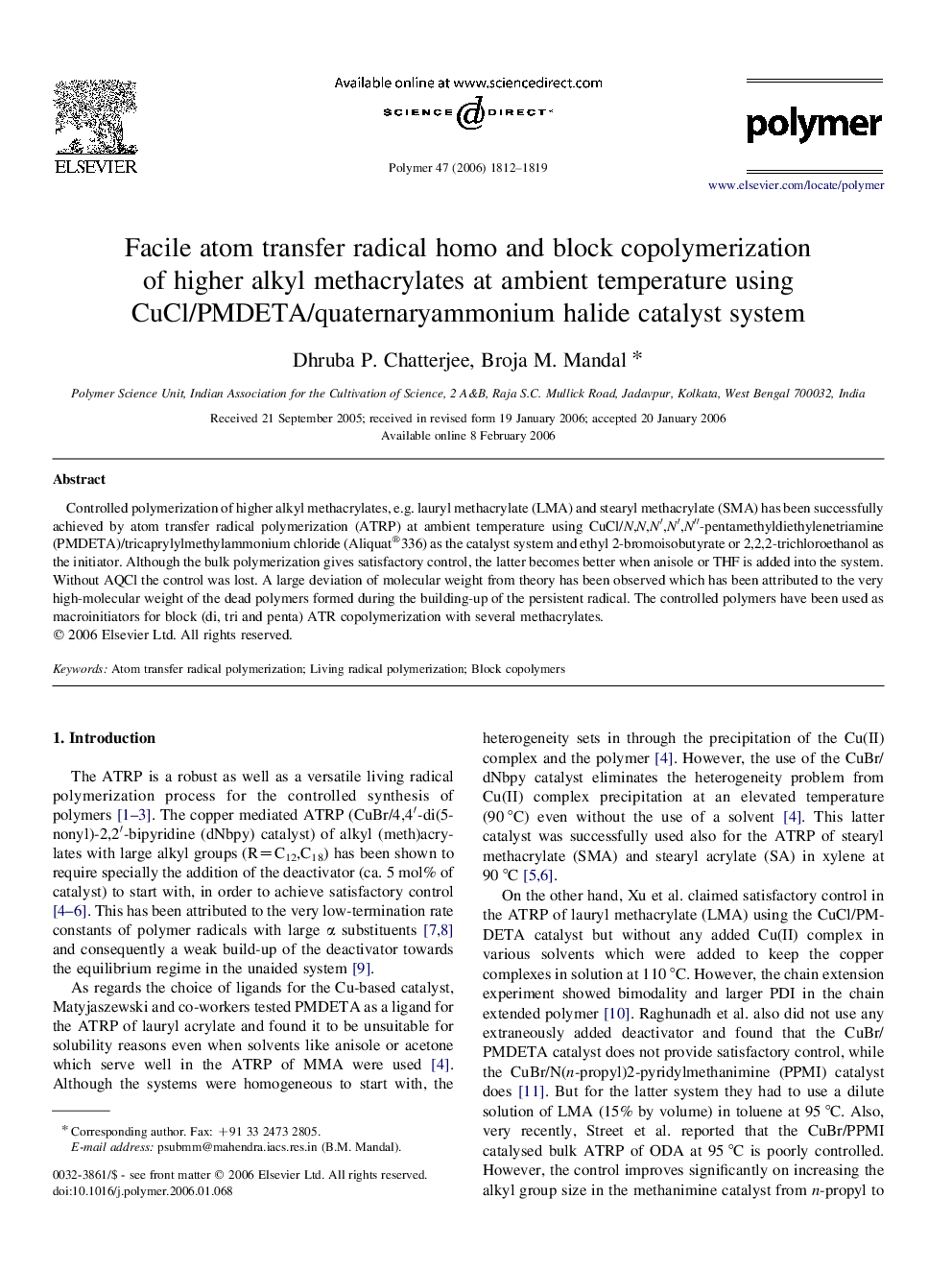| Article ID | Journal | Published Year | Pages | File Type |
|---|---|---|---|---|
| 5187298 | Polymer | 2006 | 8 Pages |
Abstract
Controlled polymerization of higher alkyl methacrylates, e.g. lauryl methacrylate (LMA) and stearyl methacrylate (SMA) has been successfully achieved by atom transfer radical polymerization (ATRP) at ambient temperature using CuCl/N,N,Nâ²,Nâ²,Nâ³-pentamethyldiethylenetriamine (PMDETA)/tricaprylylmethylammonium chloride (Aliquat®336) as the catalyst system and ethyl 2-bromoisobutyrate or 2,2,2-trichloroethanol as the initiator. Although the bulk polymerization gives satisfactory control, the latter becomes better when anisole or THF is added into the system. Without AQCl the control was lost. A large deviation of molecular weight from theory has been observed which has been attributed to the very high-molecular weight of the dead polymers formed during the building-up of the persistent radical. The controlled polymers have been used as macroinitiators for block (di, tri and penta) ATR copolymerization with several methacrylates.
Related Topics
Physical Sciences and Engineering
Chemistry
Organic Chemistry
Authors
Dhruba P. Chatterjee, Broja M. Mandal,
